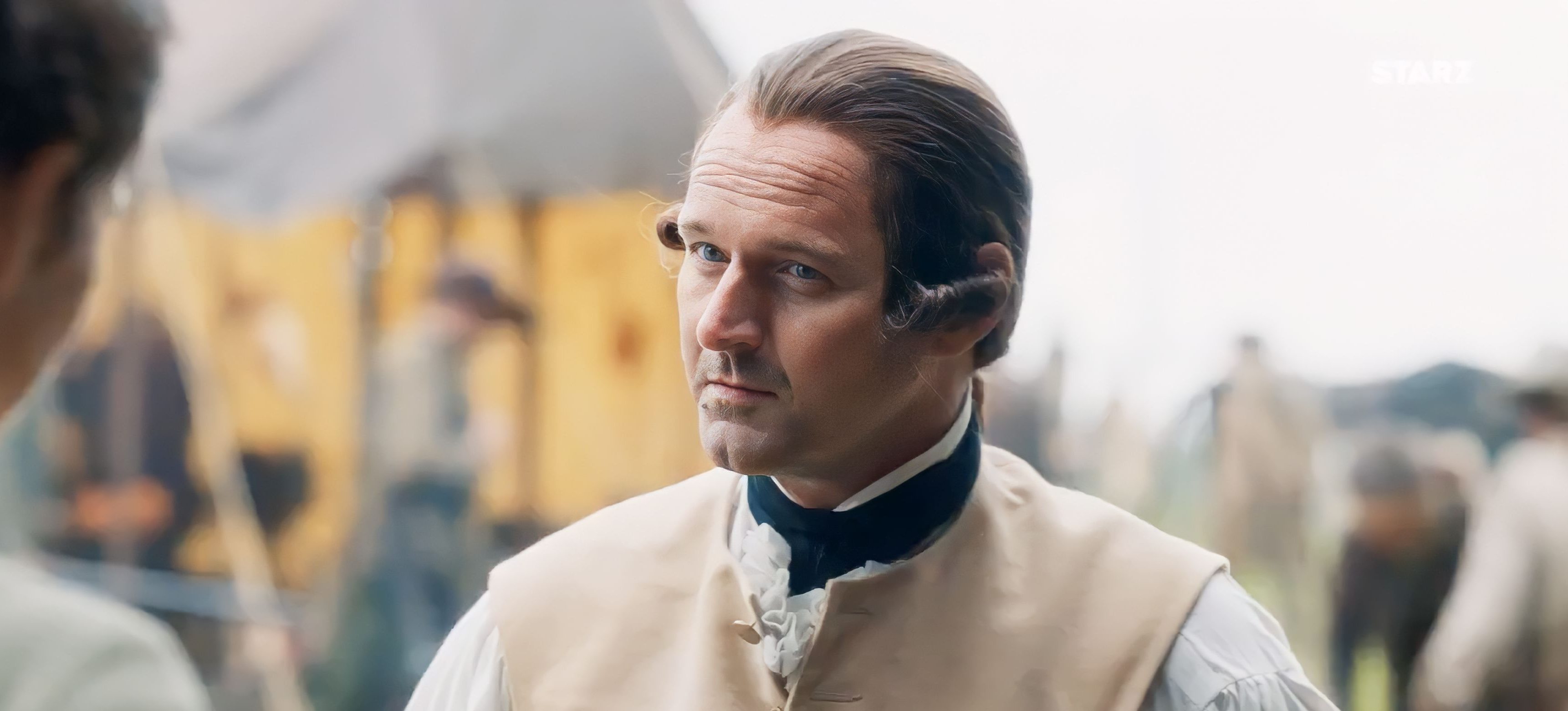The eighth episode of Starz’s historical series ‘Outlander’ season 7 revolves around the Second Battle of Saratoga. Before the battle, Claire Fraser encounters Major General Benedict Arnold, who meets her to garner a medicinal bark. Once their conversation ends, Claire informs her husband Jamie Fraser that Arnold will betray the Continental Army and join the British Army while the former marches toward victory. Arnold then leads the Rebels in the battle, only to sustain a serious injury. Despite getting injured, Arnold succeeds in winning the battle. Claire’s revelation about Arnold may make one wonder whether the soldier is based on a real military officer. Well, let us provide the answer!
Major General Benedict Arnold Was a Real Military Officer
Yes, Major General Benedict Arnold is based on a real person. The character is based on the eponymous Connecticut-born military officer who served during the Revolutionary War. Arnold joined the War at the age of 34 while he was working as a pharmacist. In March 1775, he was elected as a captain in the Connecticut militia. Arnold and his company took part in the Siege of Boston, the opening phase of the War. Upon realizing that Fort Ticonderoga, a major setting of the seventh season of the series, is poorly defended, he proposed capturing the same. He then joined Ethan Allen to conquer the fort.

In the following year, the Siege of Boston came to a conclusion and the heavy cannons taken by Arnold played an instrumental part in the same. Meanwhile, Arnold suffered a major setback as he sustained a severe leg injury during a failed attack on British-occupied Quebec, Canada. He returned to the battlefield in 1779 to take part in the Battle of Ridgefield. The battle ended with an American victory as the British force lost around two thousand soldiers in the same. Arnold then led the American forces in the Battle of Saratoga and tasted victory again. In addition to the surrender of thousands of British soldiers, the Rebels’ victory led France to ally with the Continental Army.
Despite winning the Battle of Saratoga, Arnold sustained his second severe leg injury as the eighth episode of the seventh season depicts. George Washington, Commander in Chief of the Continental Army, appointed Arnold as the Military Governor of Philadelphia for the latter to recover from his injury. The aftermath of the Battle turned Arnold’s life around. Although he played an unignorable part in the victory of the Rebels in the same, others took credit for the success and got promotions. Arnold not only didn’t receive a promotion but also had to witness his junior officials receiving the same.

Since then, Arnold’s service as a Continental Army officer went downhill. In addition to financial troubles, he faced a court-martial on charges of misconduct and financial impropriety. Even though he was mostly exonerated, his reputation among the Rebels wasn’t the same. Upon failing to tolerate the way the Continental Army treated him, Arnold decided to turn against them by becoming a spy for the British Army. He asked for and received the command of the American defenses along the Hudson River at West Point in 1780. At the time, West Point was an integral part of the American forces since the outpost was essential for communication and transportation between New England and the rest of the country.
After receiving the command of West Point, he informed Major John André, the intelligence chief to British Commanding General Sir Henry Clinton, that he was ready to hand over the outpost reportedly in return for £20,000. According to the United States Intelligence Community, Arnold also offered the potential capture of George Washington to the British, only for the latter to readily join hands with the former. His treachery was soon discovered by Washington after André was captured by American militia. The British Army then appointed Arnold as a brigadier general to fight against his own countrymen.
Arnold moved to London, England, when the defeat of the British Army in the Revolutionary War became a certainty. He died on June 14, 1801, at the age of 60, after living in England in relative obscurity for years.
Read More: Will Young Ian and Rachel End Up Together in Outlander?


You must be logged in to post a comment.